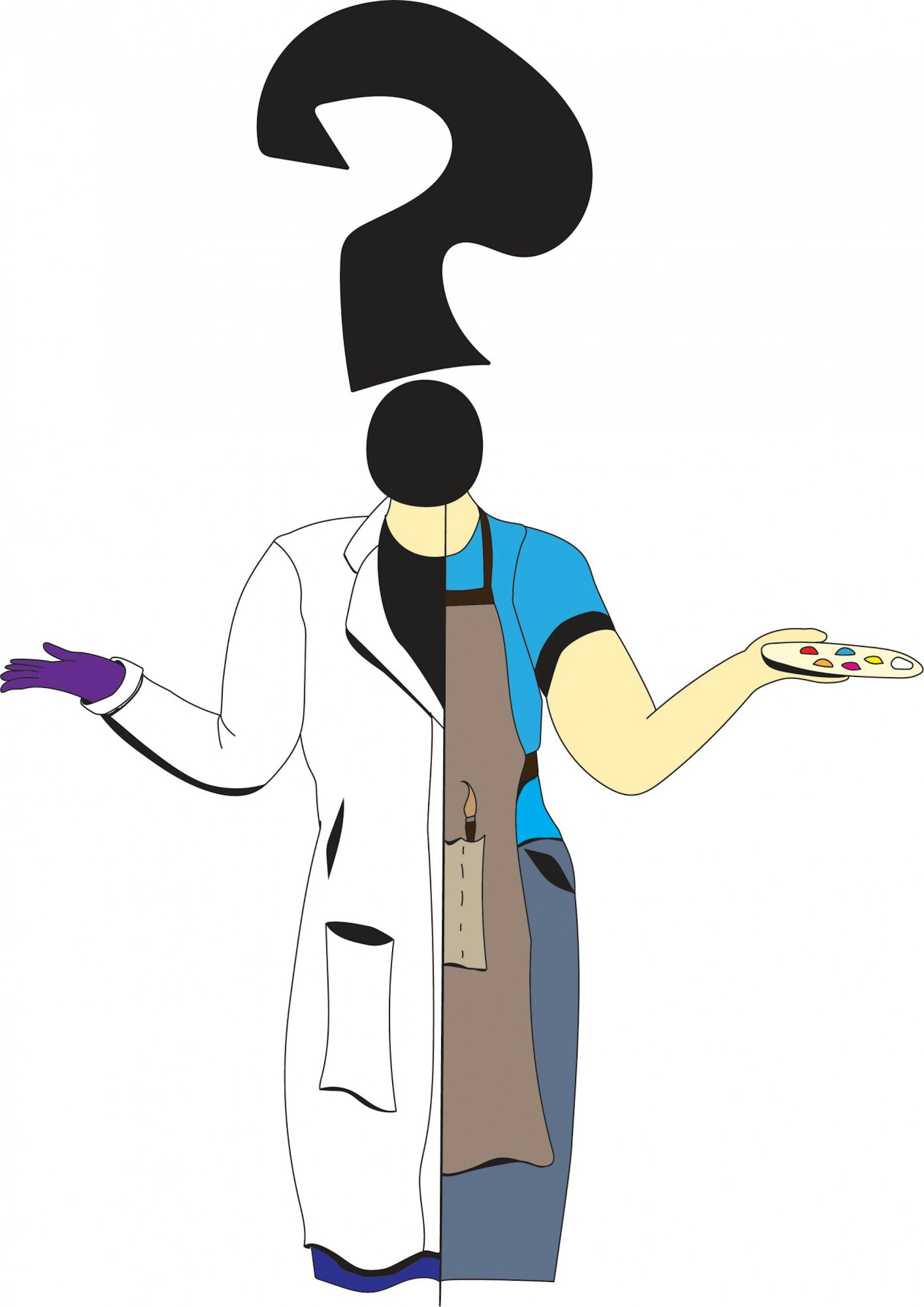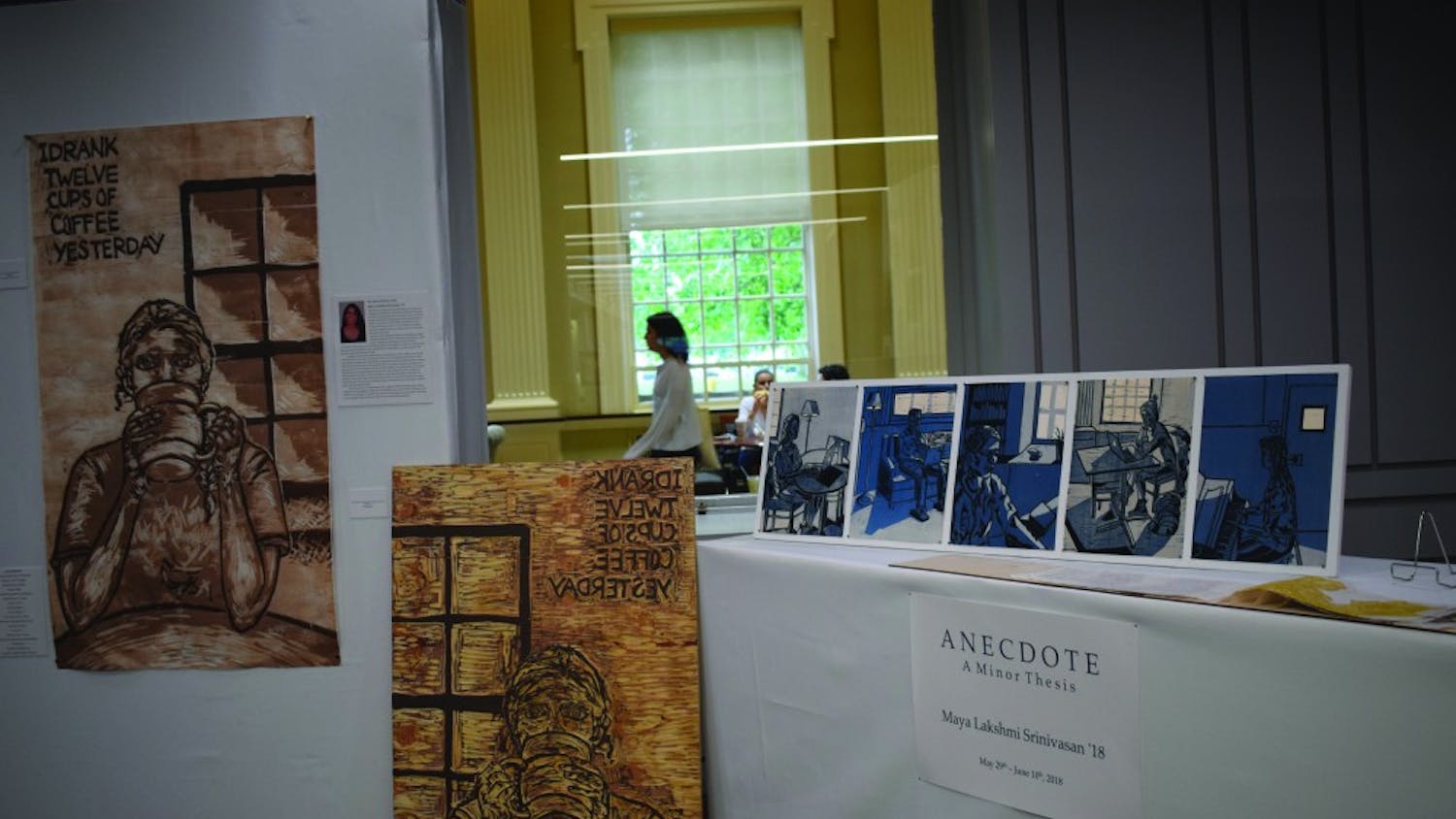At Dartmouth, where 35 percent of given degrees are for the social sciences, another 9 percent are for engineering, and 8 percent are for biological or life sciences, it can be easy to look at potential degree paths through a narrow lens. While Dartmouth’s liberal arts philosophy encourages students to experience a wide range of academic fields, this kind of study is often accomplished through students’ efforts to complete distributive requirements. For example, an engineering major may take COLT 1: “Read the World” his freshman fall for a literature credit or a government major may take EARS 2: “Evolution of Earth & Life” her sophomore summer for a science credit. But for some students, studying across departments has influenced their chosen degrees — leading them to combine seemingly conflicting areas of study, fusing art with technology and blending science with humanities.
According to interim associate dean of undergraduate students Larissa Hopkins, Dartmouth’s liberal arts focus fosters an environment that supports interdisciplinary exploration. She also said that Dartmouth’s extensive major and minor offerings makes it easier for students to string together their various academic interests.
Katherine Taylor ’22 is a prime example of a student with an interdisciplinary combination; she is an unofficial film modified with computer science major.
“I feel like I struggled for a while to figure out what I wanted to major in, because there’s a lot of things I like and I don’t feel particularly super passionate toward one field. I have a lot of creative interests but I also like more STEM-y stuff, so I wanted to do a mix of the two,” Taylor said.
Biology major and classical studies minor Chithra Singareddy ’22 had a different experience when deciding what to study, since she knew what interested her before coming to Dartmouth. While biology was something Singareddy wanted to pursue since early in high school, she was initially hesitant to learn about classics; her parents convinced her to attend the advanced studies program at the St. Paul School in Concord, NH, where she was assigned to study Ancient Greece. There, she discovered a passion for a subject that she has been able to pursue at Dartmouth.
“It was really relaxing for me to not always be thinking about my career when I was learning about something — just learning for the sake of learning — and I think that’s held true in my minor,” Singareddy said.
Singareddy said she strikes a balance between her two interests by taking one or two STEM classes with a classics class, giving her brain a bit of a break while still studying something that interests her.
“It’s really nice to have a class that kind of doesn’t matter — not that it doesn’t matter, but it’s less high-stakes,” Singareddy said. “And I can just really enjoy what I’m learning, and I don’t always have to apply it to my research and think about what I learned in chem or bio. It’s just kind of self-contained, and it’s chill.”
This term, she is taking CLST 10.10; “Ancient Medicine,” a class which combines both classics and the scientific theory aspects of biology. This will likely be the only convergence of Singareddy’s disciplines: However, Taylor currently plans to apply her studies to a career in the entertainment industry given that she sees film and computer science colliding as the field continues to advance technologically.
Taylor said she attributes her opportunities to experiment with classes to the quarter system, which allowed her to eliminate options as she went along.
“I think the quarter system is very helpful for that, because it felt like each class I took was less pressure,” Taylor said. “I felt like I had time to explore different stuff and figure out what I wanted to do because I came in with no clue and I still don’t really know, but we have a plan.”
While the quarter system can make it easier for some students to cross departments for modified majors, double majors and minors, it can be extremely difficult for those on the pre-health or engineering paths. For pre-health students, there are 13 required classes (assuming that a student did not test out of any introductory courses), and this does not include additional courses for those who wish to major in physics, chemistry, psychology or sociology. For the Bachelor of Arts in engineering sciences, there are 17 requirements: still nine less than the 25 required courses for the five year Bachelor of Engineering program. Once the nine distributive requirements and three world culture requirements are factored in, this leaves little room for these students to explore.
But for students with sufficient space in their course load, Singareddy said she finds that the College is unique in how it supports students’ endeavors across academic fields.
“I think that there’s not a ton of schools where I could do this except Dartmouth. I think that Dartmouth really loves their students to be intersectional, and be well-rounded and love a lot of things,” Singareddy said. “I feel like the fact that I didn’t have to declare a major — or I technically haven’t yet but I have to this term — I think that lets students and me in particular try whatever you want.”



